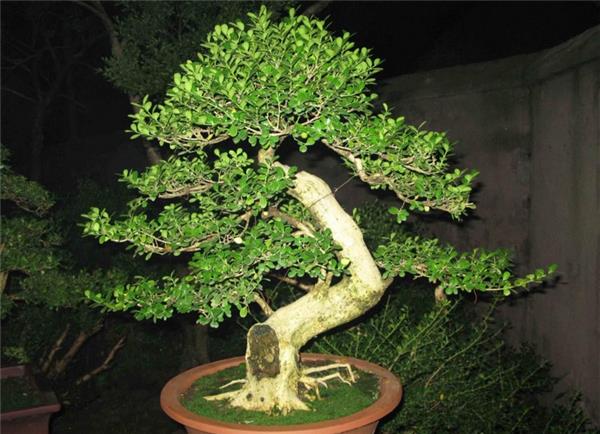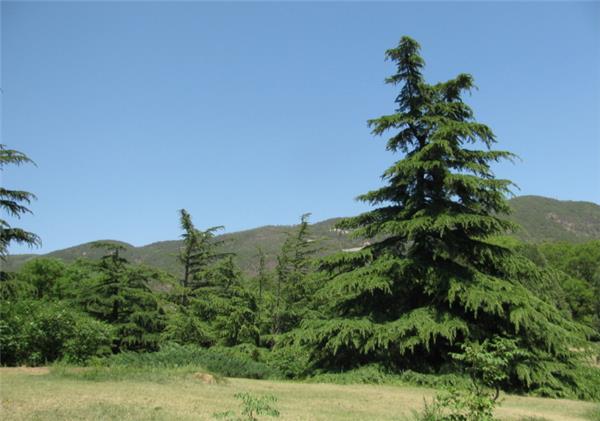Culture methods of Cedar
Cedar is one of the famous garden ornamental tree species in the world. It has strong dustproof, noise reduction and sterilization ability, and it is also suitable for greening tree species in industrial and mining enterprises. the following is to introduce the breeding methods of cedar.

Culture methods of Cedar
1. Water and fertilizer
Cedar has a certain ability to resist drought and is afraid of waterlogging. The soil in the basin can be kept moist. Often observe the basin soil, if dry, water thoroughly, but can not make the basin stagnant water (so it is best to use a hole in the bottom of the basin, and a pad with broken stones). Drainage should be carried out in time after rain (especially in summer rainy days and autumn plum rainy days, pot plants can be moved into indoor bright places). If not handled in time, cedar roots may rot.
Fermented manure and cake fertilizer are suitable for fertilization of cedar, and cake fertilizer is the main method for pot culture. Fertilization time is best controlled in April-May, pay attention to fertilizer and water should not be too thick, can be divided into 2-3 times.
2. Turn the basin
The basin should be turned every 2-3 years, and it is better to do it before sprouting in March-April in spring. When turning the basin, change half of the loose and fertile new soil and cut off the rotten roots. Just after turning the basin, first put it in the shade for half a month, and then enter the normal management.

3. Pruning
In the process of cedar management, attention should be paid to shaping and changing the head. Cedar heavy branches, the head will be damaged or in a weak position, must be pulled up with strong side skills, tied up, and later become the central advantage, this process is to change the head.
The pruning method is mainly combing off dense branches and growing branches, cutting off dead branches, disease and insect branches, and the tree shape is mainly based on personal preference. (in order to prevent the cedar from growing too high, it is necessary to remove the terminal bud and eliminate the apical advantage, so that the cedar can sprout more lateral branches.)
4. Diseases and insect pests
When potting cedar, we should mainly pay attention to the control of leaf blight. It can be sprayed with 500-800 times of dimethazone solution. There are many insect pests, and 1000-1500 times of dichlorvos can be sprayed.

Propagation method of cedar
Cedar has always been propagated with cedar cuttings, and the survival rate is low. In the past two years, some units have used cedar seeds to sow and propagate, and have gained some experience, with emphasis on the following points:
1. Cedar seedlings are afraid of drought and waterlogging, so the breeding nursery should be built in sandy soil with convenient drainage and irrigation, slightly sour soil and deep and fertile soil. Do not breed in the vegetable fields and old gardens that have been growing for many years.
2. The nursery of cedar should apply sufficient cake fertilizer or mature fence fertilizer as basic fertilizer when ploughing. If good fields are used to breed, 100 jin of calcium magnesium phosphate fertilizer should be added per mu; before the last ploughing and raking, 2-3 jin of dimethazone or 20-30 jin of ferrous sulfate per mu should be applied to disinfect the soil, and then make a seedbed with deep ditch and high bed, and the bed should be fine and built into the shape of tortoise back. The built bed is then covered with a layer of 3-5cm thick, disease-free, fertile, loose and screened mountain soil.
3. Cedar seeds should be soaked and germinated before sowing, and the best effect is to soak the seeds in cold water for 96 hours; they can also be soaked in warm water at 45-50 °C for 24 hours, sterilized with 0.1% potassium permanganate for 30 minutes, and then washed with clean water to dry and sow the seeds. Do not sow seeds with wet. Sowing time is usually carried out before "the Spring Equinox", early rather than late, strip sowing is better, row spacing is 10-15cm, plant spacing is 4-5cm, seeds should be planted on the sowing ditch, sowing amount is 15-20jin per mu, and 0.5-1cm thick is covered with yellow soil or charred plaster after sowing.
4. Seedling bed mulching after sowing is the key measure for successful propagation of cedar. Not only should the soil be covered after sowing. Moreover, put on a thin layer of wolfskin straw or straw, sprinkle water on it with a kettle to keep the bed moist, and remove the grass when the seedling is more than 70%. In order to prevent the newly unearthed seedlings from being lost by rain, a low-layer film shed should be set up immediately after grass mulching, and the temperature in the shed should be well controlled. Ventilation should be carried out when the temperature in the shed is kept at 15-20 °C. On a sunny day when the outside temperature is above 15 °C, the film can be opened during the day and covered at night. When the seedlings grow true leaves, remove the low shed, and then build an elevated shade shed.

The cedar tree is tall and graceful, so it is most suitable to be planted alone in the center of the lawn, the center of the vestibule, the center of the square or both sides of the main building and the entrance of the garden gate. The large branches of the lower part of the trunk spread from near the ground, do not wither all the year round, and can form luxuriant and majestic crowns. In addition, they are planted on both sides of the garden road to form corridors, which are also very spectacular.
Related
- Wuhan Hospital Iron Tree Blooming Result Was Instantly Frightened by the Gardener Master
- Which variety of camellia is the most fragrant and best? Which one do you like best?
- What is the small blue coat, the breeding methods and matters needing attention of the succulent plant
- Dormancy time and maintenance management of succulent plants during dormancy
- Minas succulent how to raise, Minas succulent plant pictures
- What are the varieties of winter succulent plants
- How to raise succulent plants in twelve rolls? let's take a look at some experience of breeding twelve rolls.
- Attention should be paid to water control for succulent plants during dormant period (winter and summer)
- Watering experience of twelve rolls of succulent plants
- Techniques for fertilizing succulent plants. An article will let you know how to fertilize succulent plants.



